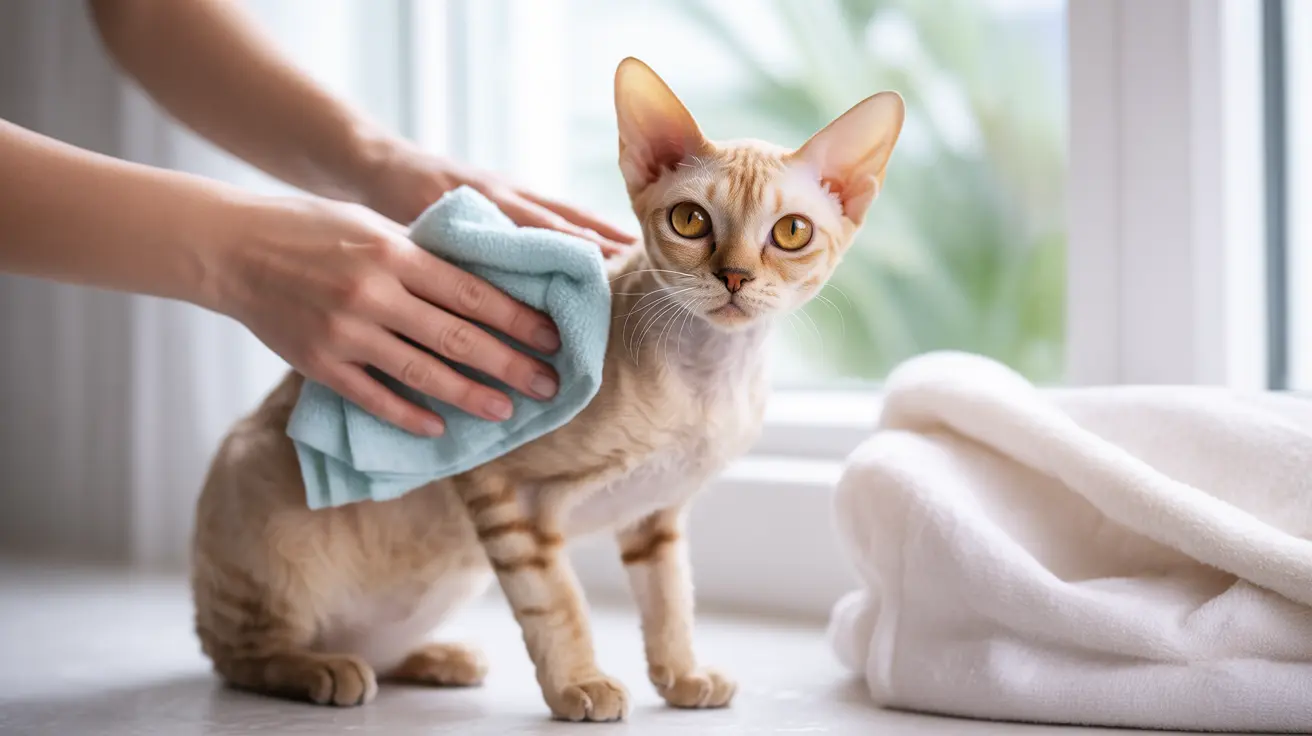For allergy sufferers searching for a feline companion, the Devon Rex cat often appears on lists of "hypoallergenic" breeds. But before you rush to adopt one of these distinctive cats with their soft, wavy coats, it's important to understand the reality behind the hypoallergenic claims.
The truth is that while Devon Rex cats may be better tolerated by some allergy sufferers, they are not truly hypoallergenic. Let's explore why these unique cats might trigger fewer allergic reactions in some people, and what you need to know before bringing one into your home.
Understanding Cat Allergies and the Devon Rex
The main culprit behind cat allergies isn't actually fur - it's a protein called Fel d 1, which cats produce in their saliva and sebaceous glands. When cats groom themselves, this protein spreads to their fur and skin cells, eventually becoming airborne as dander. Devon Rex cats, like all cats, produce this allergen.
However, their distinctive coat characteristics may offer some advantages. Devon Rex cats have a very short, curly coat that's notably thinner than most other breeds. This unique fur pattern, caused by a natural genetic mutation, means they may spread fewer allergens into their environment.
The Devon Rex Coat Advantage
Several features of the Devon Rex coat contribute to their reputation for being more allergy-friendly:
- A significantly reduced number of guard hairs
- Short, fine, wavy fur that sheds less than traditional cat coats
- Less dense coat overall, resulting in less hair in the environment
- Lower tendency for fur to become airborne
Managing Allergies with a Devon Rex
Grooming Practices
Proper grooming can significantly impact allergen levels in your home:
- Use a soft, damp cloth instead of brushes to avoid breaking delicate fur
- Regular gentle wiping helps remove loose dander and distribute natural oils
- Consider monthly baths if your cat's skin tends to be oily
- Always use cat-specific products to maintain skin health
Environmental Controls
Creating an allergy-friendly home environment is crucial:
- Install HEPA air purifiers in main living areas
- Vacuum frequently with a HEPA-filtered vacuum cleaner
- Wash bedding and cat beds weekly in hot water
- Designate certain rooms, especially bedrooms, as cat-free zones
Before Adopting a Devon Rex
If you're considering a Devon Rex despite having allergies, take these important steps:
- Spend significant time with the specific cat you plan to adopt
- Visit multiple times to assess your reaction consistency
- Consider allergy testing or consulting with an allergist
- Prepare your home with appropriate air filtration systems
- Have a backup plan in case allergies prove too severe
Frequently Asked Questions
Are Devon Rex cats truly hypoallergenic or just low-shedding?
Devon Rex cats are not truly hypoallergenic, as they still produce the Fel d 1 allergen. However, their unique coat structure may result in less shedding and fewer allergens in the environment compared to other breeds.
How does the Fel d 1 allergen affect allergy sufferers with Devon Rex cats?
Fel d 1 allergen affects Devon Rex owners the same way it affects people allergic to other cats - through skin contact, inhalation, and eye exposure. The difference lies in potentially reduced exposure due to their coat type.
What grooming practices help reduce allergens for people allergic to Devon Rex cats?
Regular wiping with a damp cloth, occasional baths, and avoiding brushing (which can break their delicate fur) are the most effective grooming practices for managing allergens in Devon Rex cats.
Can spending time with a Devon Rex cat beforehand predict allergic reactions?
Yes, spending extended time with a specific Devon Rex can help predict your allergic response, though reactions may vary over time and with different individual cats.
What environmental measures can help allergy sufferers live comfortably with a Devon Rex cat?
Using HEPA air purifiers, frequent cleaning, maintaining cat-free zones, and regular washing of fabrics can significantly help manage allergen levels in the home.
Conclusion
While Devon Rex cats aren't truly hypoallergenic, their unique coat characteristics may make them a better choice for some allergy sufferers. Success in living with a Devon Rex despite allergies depends on a combination of proper grooming, environmental management, and individual tolerance levels. Always test your compatibility with a specific cat before committing to adoption, and be prepared to implement comprehensive allergen control measures in your home.






